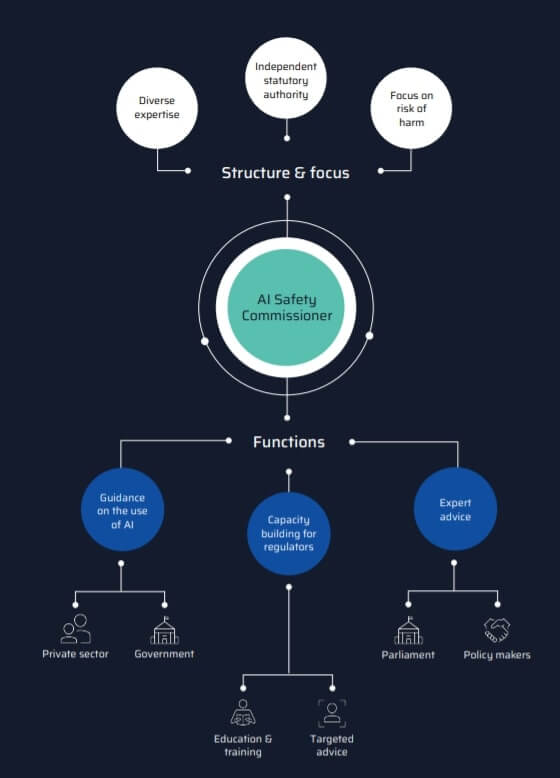Contents:
The Australian Human Rights Commission (AHRC) has recently demanded harsher laws around the use of facial recognition and other biometric technology, requesting a ban on its use in “high-risk” areas, ZDNet writes.

Image Source: AHRC Human Rights and Technology Report
AHRC has released a 240-page report with Human Rights Commissioner Edward Santow stating that Australians call for safe, fair, and reliable technology, that with the right settings in law, policy, education, and funding, the government, together with the private sector, can “build a firm foundation of public trust in new technology”.
Making 38 recommendations in total, the Commission also discussed legal accountability for private sector use of AI, requesting the legislation flagged for government use of AI also be extended to NGOs.
Personal information is the ‘fuel’ that powers AI. It is well recognized that AI poses particular risks to individuals’ control of their own personal information and the right to privacy. Seemingly innocuous personal data can be used, especially in an AI-powered system, to gain insights about an individual, including on sensitive matters.
The use of AI in biometric technology, and especially some forms of facial recognition, has prompted growing public and expert concern.
The Commission recommended a privacy law reform to protect against the most serious harms associated with biometric technology.
According to the report, concerns such as the risk of profiling and errors leading to the risk of discrimination, including bias against people of colour, as well as a blanket concern over mass surveillance were raised throughout the AHRC’s consultation on the use of biometrics.
Australian law should provide stronger, clearer and more targeted human rights protections regarding the development and use of biometric technologies, including facial recognition. Until these protections are in place, the Commission recommends a moratorium on the use of biometric technologies, including facial recognition, in high-risk areas.
As a result, the AHRC has made a number of recommendations with the first asking federal, state, and territory governments to adopt new legislation that regulates the use of facial recognition and similar biometric technology.
This new legislation should:
- expressly protect human rights
- apply to the use of this technology in decision making that has a legal effect for individuals, or where there is a high risk to human rights, such as in policing and law enforcement;
- be developed through in-depth consultation with the community, industry, and expert bodies such as the AHRC and the Office of the Australian Information Commissioner (OAIC).
The AHRC also said that where biometrics are concerned, the government should introduce a statutory cause of action for serious privacy invasion.
Until appropriate legislation is in effect, the Commission recommends the introduction of a limited or partial moratorium on the use of facial recognition and other biometric technology in AI-informed decision making (that is, decision making that has a legal or similarly significant effect).
Particular attention should be given to high-risk contexts, such as the use of facial recognition in policing, in schools and in other areas where human rights breaches are more likely to occur.
The Commission has also requested the creation of a new AI Safety Commissioner to help lead Australia’s transition to an “AI-powered world”. The Commissioner should focus on promoting safety and protecting human rights in the development and use of AI in Australia and also lead a multi-disciplinary task force on AI-informed decision-making.

Image Source: AHRC Human Rights and Technology Report
AHRC pleaded for a modern regulatory system to make sure that AI-informed decision-making is “lawful, transparent, explainable, responsible, and subject to appropriate human oversight, review, and intervention.”
The report has also asked the government to provide the necessary resources to the AHRC so that it can produce guidelines on how to comply with federal anti-discrimination laws in the use of AI-informed decision-making.
Finally, the Commission recommended the government introduce legislation to require that a human rights impact assessment (HRIA) be initiated before any department or agency uses an AI-informed decision-making system to make administrative decisions.










 Network Security
Network Security
 Vulnerability Management
Vulnerability Management
 Privileged Access Management
Privileged Access Management  Endpoint Security
Endpoint Security
 Threat Hunting
Threat Hunting
 Unified Endpoint Management
Unified Endpoint Management
 Email & Collaboration Security
Email & Collaboration Security








